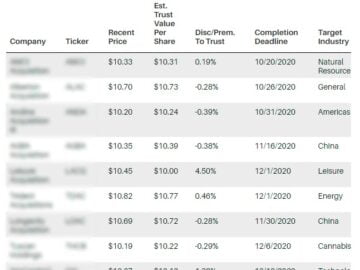It’s been a volatile summer for the stock market. The major indices have been hitting new highs, even though the virus persists and stimulus is still propping things up. We have yet to see just how “transitory” current inflation will be or how high consumer and producer prices will rise. Meanwhile, employment levels are still in recovery, which means there are fewer people who are capable of supporting such lofty valuations.
All of this creates a risk that as things return to normal, the market overall could be due for a correction. Hence this makes an excellent time for evaluating your portfolio. Even the best gardens need pruning, and our team has spotted a couple of stocks that seem like prime candidates for selling or avoiding.
United Airlines (UAL) was a weaker airline than the other major U.S. airlines before the pandemic. In 2019 the company recorded $43.26 billion in revenues but only managed around $3 billion in net income. In contrast, Delta recorded $47 billion in revenues and $4.77 billion in net income for the same time period, meaning they squeezed 58.9% more income out of revenues that were less than 9% greater.
At the onset of the pandemic, most investors anticipated that there would be winners and losers among the four major U.S. airlines. The early narrative that Southwest and Delta would see a quicker rebound and suffer less than American and United has formulated into reality.
UAL released Q2 earnings on July 20th. The bright spot was a reported net loss of $400 million, which is a vast improvement from their $7 billion loss for 2020.
United reported that capacity was 46% lower in Q2 2021 than Q2 2019 and gave guidance that it expects capacity in Q3 to be 26% lower than in Q3 2019. According to the company’s expectations, it should achieve profitability in Q3 and beyond, but they clarify that the profitability, in this case, is defined by positive adjusted pre-tax income.
United remains a weak player among the major U.S. airlines. Further, it’s clear that the company has a long way to go until investors genuinely understand the pandemic ramifications.
FuboTV reported that as of March 31st, its subscriber base topped 590,000 people, more than doubling its number of subscribers year over year. However, while the company is growing fast, profitability seems to be nowhere in sight. Nonetheless, Investors have been jumping on the fuboTV bandwagon, driving shares up by more than 160% in the past 12 months.
In its most recent quarterly results, FUBO reported a record total revenue of $130 million, up nearly 200% year over year, partially fueled by ad revenue that grew 280% to $16.5 million. While that may seem impressive, total revenue was nowhere near enough to cover its $185 million in operating expenses. Particularly concerning is fuboTV’s $113 million subscriber-related expenses, which overshadows the $107 million it brought in from subscription-related revenue. The company may continue attracting more subscribers thanks to its plans to launch a sportsbook before the end of the year. The problem is for investors that the financials might not strengthen as business expands, pointing to an inevitable need to raise cash — diluting existing shareholders. On Friday, the company revealed plans to sell $500 million worth of stock. Consequently, FUBO stock fell as much as 10%, finishing the trading day down 8.7%.












